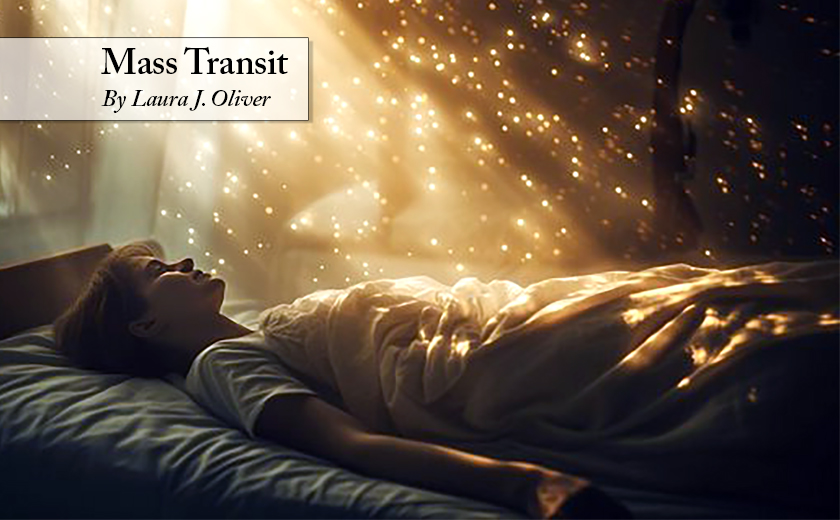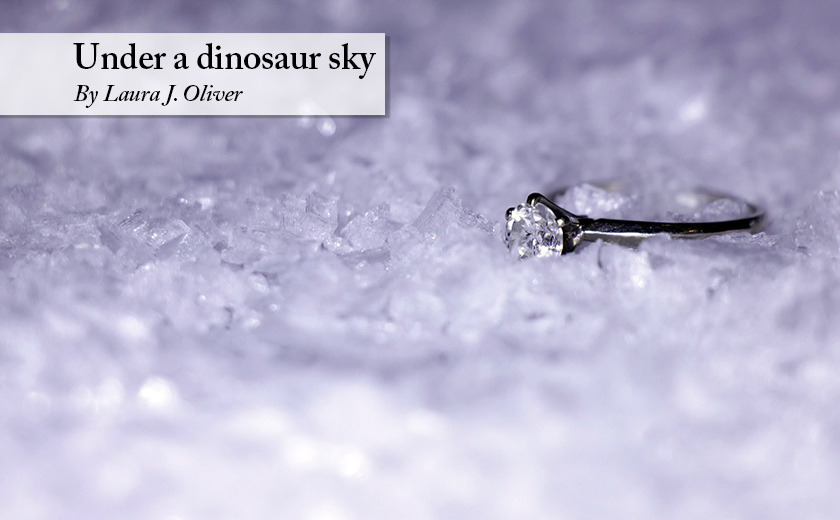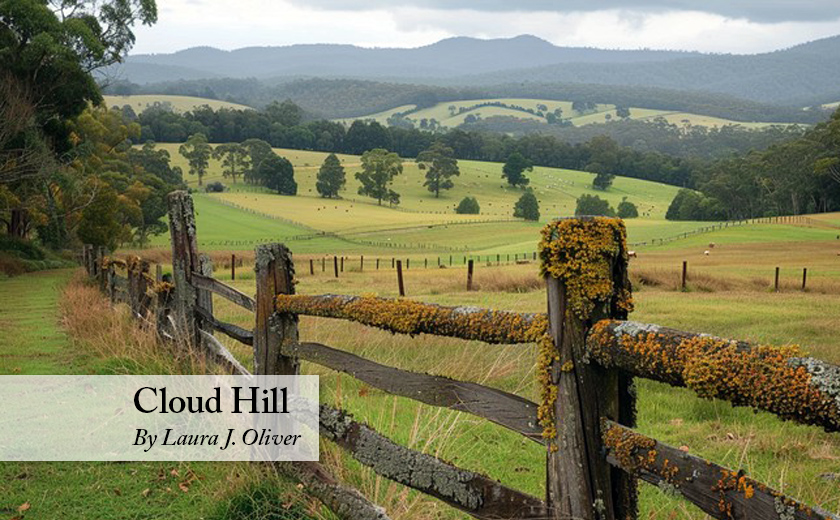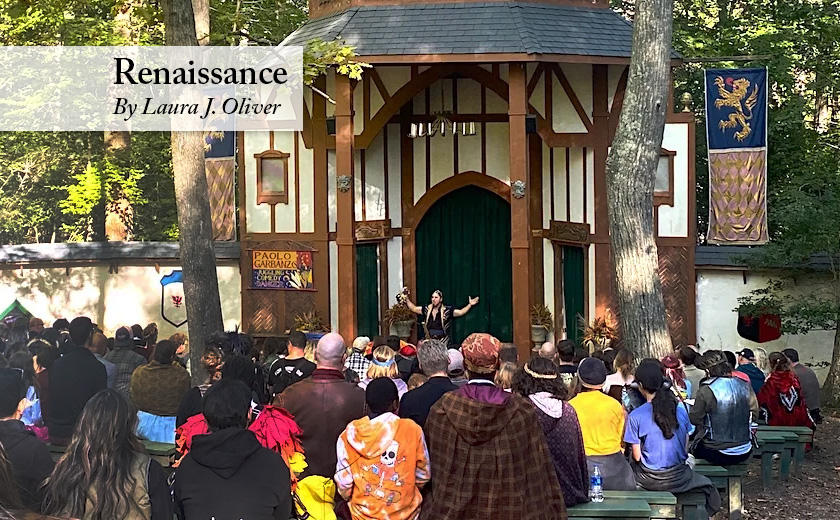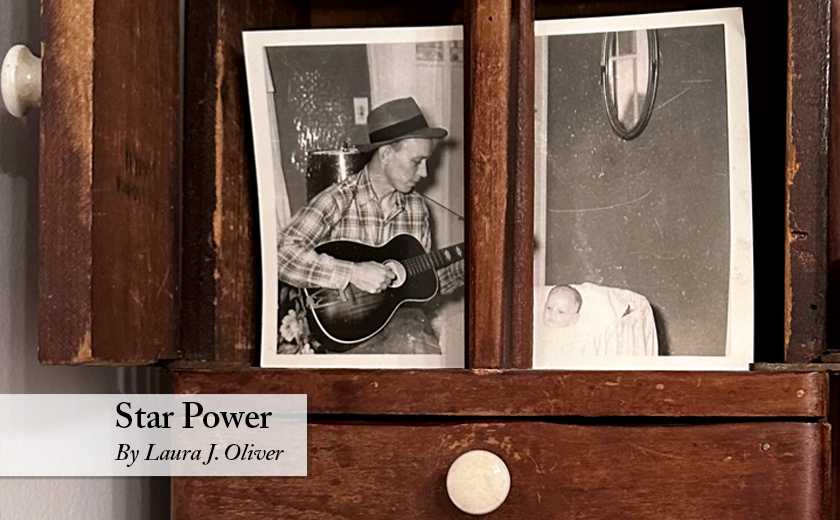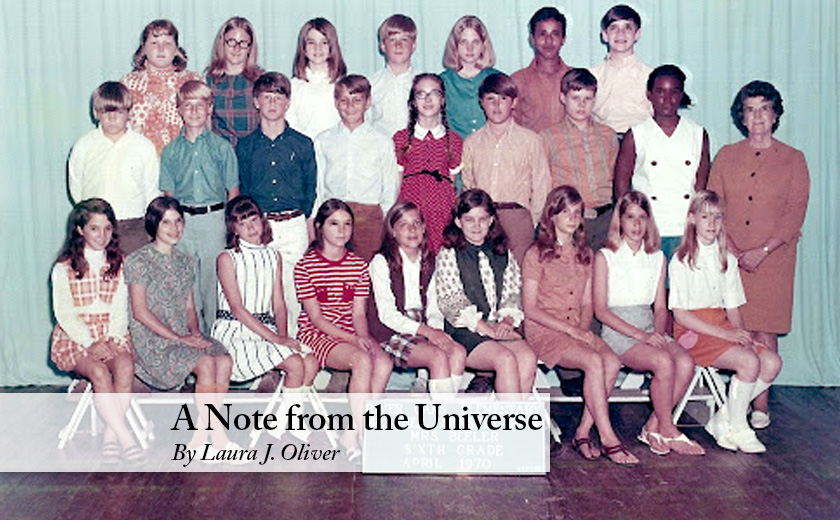If you were walking your labradoodle on the other side of the avenue, I’d look like I’m just staring at the ground, perhaps listening to a book on Audible, perhaps “James,” by Percival Everett, which, if you haven’t read it yet, stop reading this immediately and go get a copy.
I’m actually praying over a dead squirrel. And before you say “just” a squirrel, consider that he has hidden 10,000 acorns in the last six weeks and will remember and return for 90 percent of them. Next time you’re searching for your cellphone, a little respect, please. Ask a squirrel.
I can’t tell what got him. It seems squirrels have only one successful predator: cars. But he’s perfect. No visible trauma. It looks like he’s sleeping—his eyes are closed, his little feet are relaxed, and his tail is a gray plume on the dry maple leaves.
“I am so, so, sorry, squirrel,” I whisper.
I hope it looks like I’ve just paused for a moment so Leah-dog can sniff the Bachner’s boxwoods while I actually stand there and pray that death didn’t hurt or scare him and that he is scampering through the oaks in heaven with his squirrely ancestors.
But truthfully, I’m also grossed out.
Why is it that things that are perfectly fine when alive become instantly unnerving when dead? The minute the spirit leaves the body, it becomes something else.
I had to drive to Cambridge last week to record more episodes of “This is How the Story Goes” for NPR station WHCP. It’s over an hour’s drive through fetching farmland, big sky over big fields, but a lot of big things had died on the side of the road. Things that were cute when animated and scary when vacated. A raccoon, several deer (one just a fawn), a fox, a possum and several squirrels. And I’m speeding by at 65… okaaay, 75 mph, praying a dead-animal prayer for each, including for a bag of mulch that had fallen off a truck and only looked like something dead.
Dead things grieve me unreasonably. Me of all people! I don’t even believe in death as an ending—not even as a change of address—only as a change in accessibility—for now. A change in mass, vibration, and visibility. Death blindfolds us to a greater reality. How will I get your attention, say the people who still love you from the other side of now. But love doesn’t go anywhere. At least not anywhere that it can’t come back from instantaneously upon request.
I’ve only seen two dead people, the most recent being my mother. That experience was less unnerving than numbing. Having been called by the staff of her assisted living facility and informed she was “actively dying”—a horrible term, but I’m not sure I have a better one—I had tried desperately to get there before she left for parts unknown. I had wanted to see her off, to hold her hand, to be there for her last breath as she was there for my first. To say thank you one more time for everything in between.
But I was minutes too late. Minutes. The midnight call, a lazy security guard at a locked facility, a red traffic light, and an inattentive nurse, all conspired to thwart a timely arrival.
So, when I rushed up the stairs and into my mother’s room, only her body was there. The figure on the bed wasn’t her, and she wasn’t nearby. This may be only because of the opaque nature of my own soul; maybe she was standing right there, saying, “It’s okay, Laura, my brother Ralph showed up! My big sister Lenora! Then Mom and Dad invited me to come with them, so I have to go–will check on you later.”
Maybe. But while I gazed at what had been my mother, I sensed no one in the room at all.
I sat down and tried to take it in. That she was gone. That I had missed her time of departure. That I was an orphan. That the person in the bed I’d left earlier that day was a body now and that person and body are not the same thing.
I called a funeral home, sitting on a straight back chair in the silent room. It was after midnight and the holiday season. All available employees were out on other calls. Couldn’t say when they would get there. Probably hours into the night—maybe by 2:00 am or 3:00 am. Maybe by 4:00.
I sat by her side for another hour. The whole facility was silent. Sleeping. Dreaming. Christmas garlands still draped the doors. Holiday lights twinkled on Christmas trees in the hall. Classical music played softly in the dimly lit room. Silent night, holy night. Lonely night.
Total privacy, no one coming or going, and Mom so thoroughly absent. The assisted living facility had supervised this transition a million times, and I had overnight guests at home who would be waking soon. It felt as if sitting there served no purpose. So, I left.
I left. And I feel bad about that now. Really bad. What on earth was I thinking? Of course, I should have stayed, protected her no matter how tired I was, how numb. Is this why I am so grieved by everything that dies now?
When I was a child, Mom told me that the moment she knew, deep down in her bones, that we are not our bodies and yet we live on, was the moment she saw the body of her own mother. The minute I saw her, I knew she wasn’t there. It wasn’t her; she had left, yet she was in no way gone.
Left and gone. Not the same thing.
Know this as sure as you know the name that I gave you.
When it’s my turn, I won’t be able to leave if even one of my kids is in the room. So maybe I’ll do what Mom did and leave while they are at a stoplight, sleeping, or putting a baby to bed.
And I’ll say to them what Mom must have said to me as I rushed to her side that last night—
Love you. Have to go.
Will be in touch.
Laura J. Oliver is an award-winning developmental book editor and writing coach, who has taught writing at the University of Maryland and St. John’s College. She is the author of The Story Within (Penguin Random House). Co-creator of The Writing Intensive at St. John’s College, she is the recipient of a Maryland State Arts Council Individual Artist Award in Fiction, an Anne Arundel County Arts Council Literary Arts Award winner, a two-time Glimmer Train Short Fiction finalist, and her work has been nominated for a Pushcart Prize. Her website can be found here.
